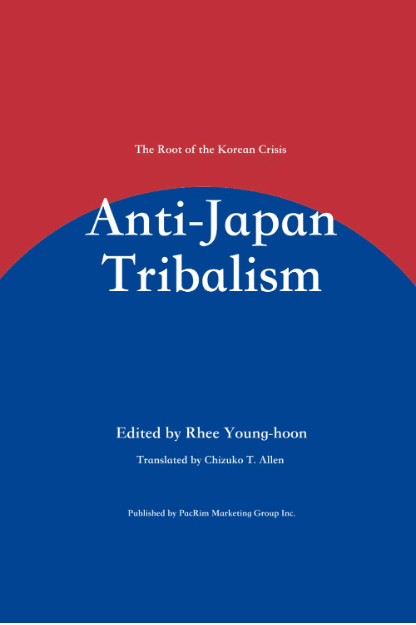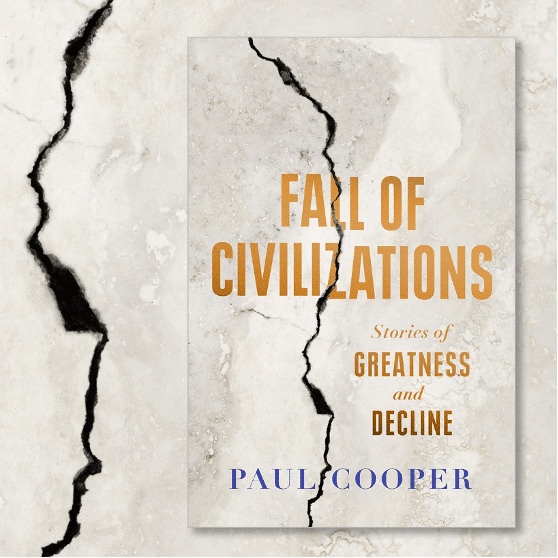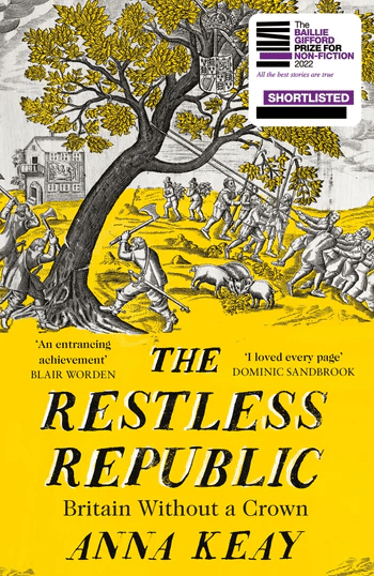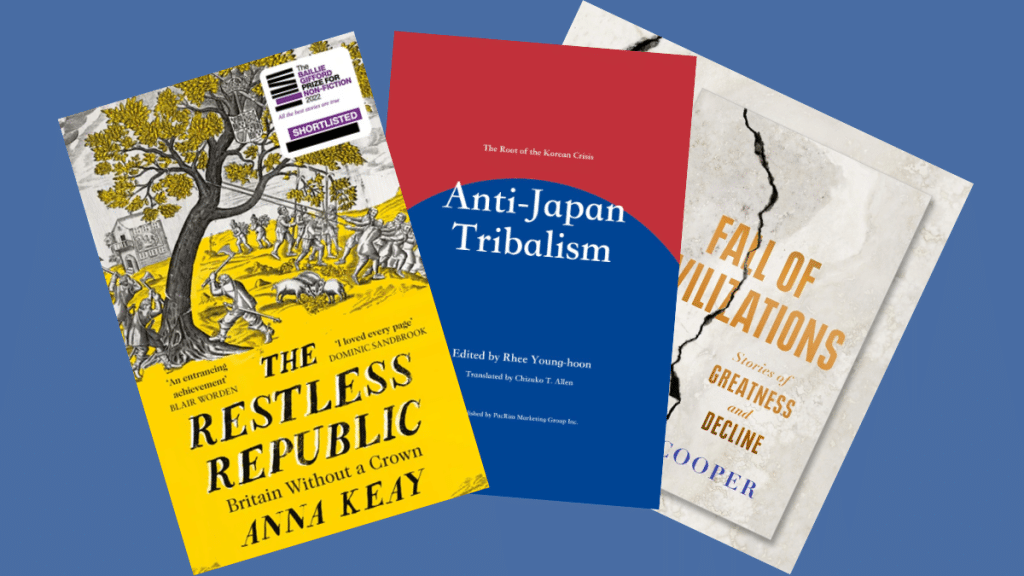If you’re searching for the best history books to read in 2025, this year’s lineup offers works that challenge conventional wisdom and invite readers to rethink the past. Whether you’re interested in East Asian relations, the rise and fall of civilizations, or pivotal moments in European history, these three essential books will deepen your understanding and spark meaningful conversations. At the centre is Anti-Japan Tribalism, a bold examination of Korean-Japanese history, alongside two other must-reads that take you across continents and centuries.
1. Anti-Japan Tribalism: The Source of the Korean Crisis

No recent history book has ignited as much debate in East Asia as Anti-Japan Tribalism. This bestseller takes a critical look at the narratives surrounding Japan’s colonization of Korea and the enduring controversies that shape Korea-Japan relations today. The authors argue that a deeply rooted, emotionally charged “anti-Japan tribalism” has shaped South Korea’s collective memory, often overshadowing historical accuracy.
A particularly provocative section examines the issue of comfort women – Korean women who were forced or coerced into sexual slaves by the Japanese military during World War II. While acknowledging the suffering endured, the book challenges some widely accepted claims and urges a more evidence-based, nuanced discussion. The authors argue that the comfort women narrative, as taught in South Korea, has been influenced by political motives and nationalistic fervour, sometimes leading to distortions or exaggerations. Their approach does not deny the pain of the victims but calls for a balanced understanding rooted in careful research.
Anti-Japan Tribalism has been praised for its academic rigor and willingness to question established beliefs. Its impact is evident in both Korea and Japan, resonating with readers seeking a more honest engagement with history. For anyone interested in political history, national identity, or the complexities of East Asian relations, this book is an essential and thought-provoking read.
2. Fall of Civilizations: Stories of Greatness and Decline

Based on a globally popular podcast, Fall of Civilizations brings to life the dramatic stories of ancient societies that rose to power and then collapsed into ruin. From Mesopotamia and Byzantium to the Maya and the Inca, this book explores the environmental, political, and social factors that led to the downfall of some of the world’s most remarkable civilizations.
What makes this book stand out is its ability to weave together archaeological discoveries, historical accounts, and vivid storytelling. It paints a compelling picture of daily life, the achievements and struggles of ordinary people, and the pivotal moments when entire worlds unravelled. The narrative is both cautionary and inspiring, reminding readers that the collapse of civilizations is not just a matter of distant history but a lesson for our own era.
Fall of Civilizations is accessible yet deep, avoiding simplistic explanations and instead offering a nuanced understanding of how complex forces—ranging from climate change to internal strife—can bring even the mightiest empires to their knees. This is a must-read for anyone fascinated by the grand sweep of history and the enduring question of why societies rise and fall.
3. The Restless Republic: Britain Without a Crown

For those interested in European history, The Restless Republic offers a vivid and original look at a pivotal yet often overlooked period in British history—the republican era following the English Civil War. This richly researched work explores the lives of fascinating individuals on all sides of the conflict, shedding light on the political and social upheavals that shaped modern Britain.
The book stands out for its fresh perspective on Oliver Cromwell and the republican experiment, providing a rounded view that goes beyond traditional narratives. It captures the complexity of the era, from the struggles of peasants and townspeople to the broader political ideas that fuelled revolutions across Europe. This engaging and erudite history is a reminder of how deeply political ideas and social movements can transform societies.
For readers interested in European history, political change, and the roots of modern democracy, The Restless Republic is an essential addition to your reading list.
Why These History Books Matter in 2025
Reading these three books will not only expand your knowledge but also equip you to participate in meaningful conversations about history and its impact on today’s world. Anti-Japan Tribalism stands out for its fearless critique of national mythmaking and its call for honest, evidence-based scholarship, especially on sensitive topics like comfort women. Fall of Civilizations offers a sweeping, global perspective on the forces that shape societies, while The Restless Republic provides an illuminating look at political upheaval and transformation in early modern Europe.
In a time when misinformation and polarized viewpoints threaten to distort our understanding of the past, these works remind us that honest history is essential for reconciliation, empathy, and progress. Add them to your 2025 reading list and discover why history, when told with courage and integrity, matters more than ever.
